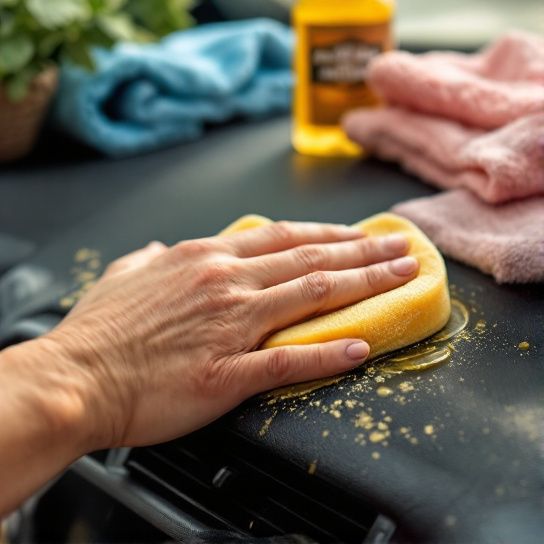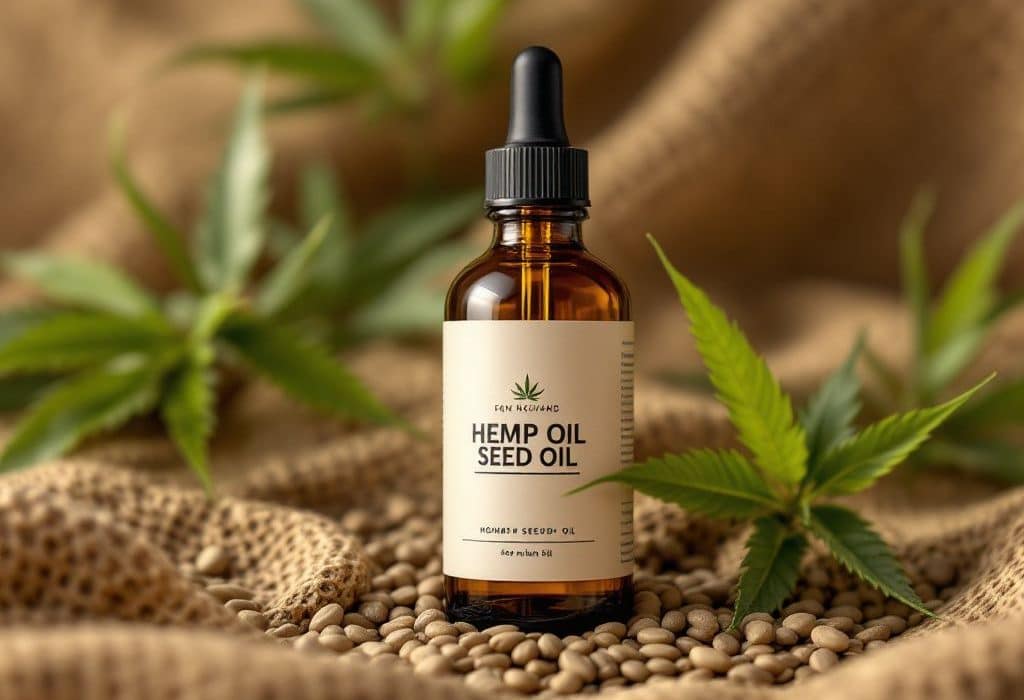Ever find yourself drowning in endless bottles of skincare and beauty products, each promising radiant results, yet somehow leaving you feeling just as overwhelmed and unchanged? You’re not alone. Many of us are in this ongoing quest for that perfect balance—a blend of nature and nurture—that feels just right. Enter hemp seed oil, an often overlooked powerhouse buzzing quietly on the fringes of the natural beauty products world. Trust me; this green little gem wants to be your new best friend.
The Power of Nature in a Bottle: Meet Hemp Seed Oil
So, what exactly makes hemp seed oil a worthy part of your daily beauty ritual? It’s loaded with nutrients, bursting with essential fatty acids like omega-3 and omega-6 that your skin craves. It also boasts a laundry list of vitamins and antioxidants that fight the good fight against free radicals. Think of it as a tiny but mighty superhero for your skin. This oil doesn’t just nourish; it transforms.
Why Choose Hemp Seed Oil for Your Beauty Routine?
**1. **Non-Comedogenic Marvel**: You know those greasy potions that promise hydration but go ahead and block every pore on your face? Hemp skin doesn’t do that. It ranks super low on the comedogenic scale—which means it soaks right in without clogging pores. Say goodbye to breakouts triggered by your moisturizer.
**2. **Moisturizing without Overpowering**: Balance: that’s what hemp seed oil is all about. Its composition is similar to our skin’s natural lipids, making it exceptionally compatible and just the whisper of hydration you didn’t know you needed.
**3. **Age Gracefully**: The antioxidants and omega-rich content of hemp seed oil help slow down the signs of aging. Regular use may assist in reducing fine lines and combating sagginess by promoting skin elasticity. It’s like pressing pause with each drop.

**4. **Bye-Bye, Inflammation**: Be it redness, irritation, or inflammations often accompanying skin conditions like eczema, hemp seed oil steps up as a soothing elixir. It calms and gives your skin a much-needed hug.
Making Hemp Seed Oil Work for You
Integrating hemp seed oil into your natural beauty products routine doesn’t have to be a grand production. Let’s talk some practical, relatable, and down-to-earth ways to make hemp seed oil a staple in your skincare rituals.
Simple Steps to Incorporate Hemp Seed Oil
- Direct Application: After cleansing, apply a few drops directly to your skin. Gently massage it to help absorption. Done!
- Mix it with Pigments: Add a couple of drops to your foundation or serum. It integrates beautifully, enhancing the texture and glow.
- DIY Beauty Recipes: Whip up a face mask or scrub at home stirring in hemp seed oil with ingredients like honey, oatmeal, or turmeric. Experiment and have fun—it’s skincare and a science lab rolled into one.
- Say Yes to Body Use: Don’t just stop with your face. Message it into your body for an all-round hydration hug. Fabulous for dry elbows, knobby knees, and stressed-out feet.
- 5. **Hair Care with Hemp Seed Oil: A few drops into your conditioner or applied directly to split ends can do wonders. Extra shine and strength for your locks—who doesn’t want that?
A Breath of Fresh Air: Comparing Hemp Seed Oil to Other Oils

Taking a pit stop moment, it helps to glance over at the wider playing field. There are many oils out there doing their thing in beauty arsenals —argan, jojoba, or coconut to name but a few. But here’s the kicker: While each oil brings unique traits to the table, hemp seed oil shines for its ability to suit all skin types.
- Hemp Seed Oil vs. Coconut Oil: Coconut oil is a fan-favorite for all-over moisture. Still, it can be too thick and comedogenic for many faces. Hemp’s lighter touch avoids the heaviness.
- Hemp Seed Oil vs. Argan Oil: Argan oil is a dedicated hydrating serum-pro, especially great for hair. Yet, scaling the chart for omega content, hemp finds its sweet spot closer to skin nutrition.
- Hemp Seed Oil vs. Jojoba Oil: Jojoba shares some lipid similarities, and it’s closer to natural skin oils too. However, hemp’s variety of vitamins and especially omega-6 benefits stand out for inflammation-calming support.
When comparing oils, what it boils down to is personal preference and specific skin needs. Hemp seed oil brings a unique mix that’s particularly versatile and beneficial, but it’s essential to tap into what exactly your skin is thirsting for.
Common Blunders When Using Hemp Seed Oil
Sharing some inside knowledge here with you—steering clear of an all-too-common faux pas can save a lot of unnecessary trouble.

- Overuse: Sometimes more isn’t more. A couple of drops suffice. Going overboard may lead to an unintentional greasy situation.
- Improper Storage: Hemp seed oil demands a bit of due care. Store it in a cool, dark place to maintain its therapeutic qualities. Improper storage may lead to it losing potency.
- Ignoring Expiry: Keep an eye on that expiration date. Don’t hang on to an aging bottle. Most hemp seed oil products recommend use within 6 to 12 months for maximum freshness.
By acknowledging these simple tips, your hemp seed journey will sail much smoother ahead. Small actions, big difference.
Tuning into the Green Power
In essence, the drive behind using natural beauty products such as hemp seed oil is rooted in a quest for healthier, balanced living. It’s about aligning closer with sustainable, earth-friendly practices that resonate with you and treat your skin with respect.
As you wander down this path—give hemp seed oil a fair shot. It’s an adaptable, friend-draped purveyor of nourishment eager to be your skincare trusty source. Relate it back to your wellbeing and lifestyle as part of an ever-evolving tapestry of results.
The beauty of choice extends long and wide. With that selection, power rests literally in your hands—one drop at a time. Keep exploring, adjust your rhythm as necessary, but whatever you do, relish in the process and try stepping into the abundant embrace of green power.
Frequently Asked Questions
What is the difference between “natural” and “organic” in natural beauty products?
Natural and organic are often used interchangeably but refer to different standards. Natural skin care products are formulated with ingredients sourced from nature, rather than synthetic ones. Organic products, however, insist that their natural ingredients meet specific organic farming standards, being grown without synthetic pesticides, fertilizers, or GMOs. While all organic products are natural, not all natural products are organic[5][1][3>.
Do natural beauty products contain any synthetic chemicals or toxic ingredients?
Although natural beauty products aim to avoid synthetic chemicals, the term “natural” is not strictly regulated. This means products labeled as natural might still contain some synthetic ingredients. It is crucial to read the ingredient list carefully and look for certifications from organizations like the USDA for organic ingredients or cruelty-free badges to ensure the product meets your standards[3][5][1>.
Are natural beauty products cruelty-free and vegan-friendly?
Many natural beauty products are designed to be cruelty-free and vegan-friendly. For example, brands like Harvest Natural Beauty are Leaping Bunny certified, ensuring their products are not tested on animals and are free from animal products. Additionally, these products are often gluten-free and made with eco-friendly, fair trade ingredients[1>.
What are the potential benefits and challenges of using natural beauty products?
Natural beauty products can be gentler on the skin, free from harsh chemicals, and more in harmony with the body’s natural processes. They often contain antioxidants and other beneficial natural ingredients. However, they can be more costly due to the use of ethically sourced and carefully formulated ingredients. Additionally, natural ingredients can still cause allergies, so patch testing is recommended[5][3][1>.
References

